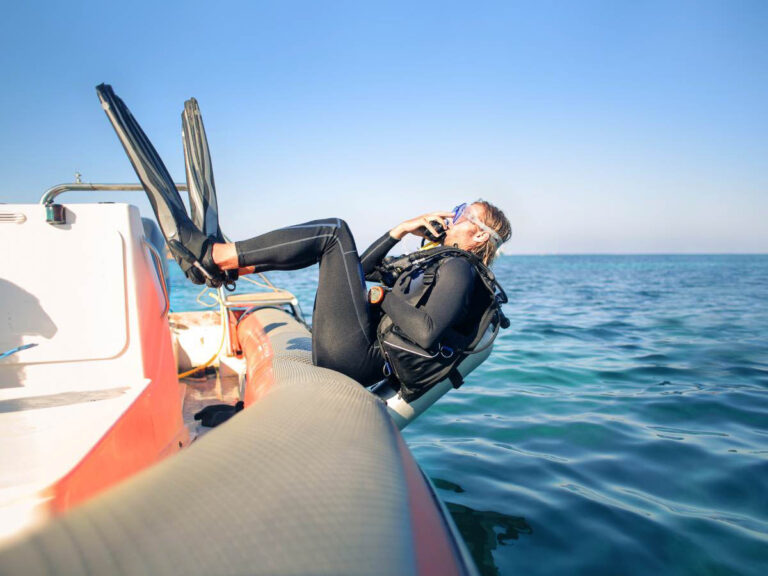When it comes to finding a pastime, scuba diving is full of fun and adventure. Preparing your boat for the trip is one of the most important parts.
Are you a boat owner with a passion for scuba diving? There’s nothing quite like exploring the underwater world after jumping from your own vessel.
Whether you’re new to the scene or a seasoned diver, preparing your boat for scuba diving is essential for a safe and enjoyable experience. Here’s everything you need to know to transform your vessel for your next deep dive.
Assessing Your Boat’s Suitability
First, make sure your boat is suitable for scuba diving. There are many ways to get your boat ready for summer fun. Consider the size, stability, and storage capacity to ensure it’s spacious enough to accommodate yourself, fellow divers, and everyone’s gear comfortably. The boat should also be equipped with features that support easy entry and exit from the water, allowing you to enjoy the diving experience.
Conducting Pre-Dive Checks
Before each trip, conduct thorough pre-dive checks. Inspect your boat’s engine, fuel levels, and navigation systems to ensure everything is accessible and in good condition. Inspect scuba tanks for signs of damage or corrosion, and ensure they’re full. Finally, check all masks, fins, and snorkels for cracks or damage, and make sure straps and buckles are secure and functional.
Communicating With Your Crew
Communication among the crew is vital for the success of any scuba diving expedition. It gets everyone on the same page, reduces misunderstandings, and enhances safety. Conduct a comprehensive pre-dive briefing before setting out, and cover the itinerary, dive sites, and expected marine life encounters. Maintain ongoing communication throughout the trip using radios or other communication devices.
Respecting Marine Life and Environment
Responsible diving practices preserve marine ecosystems. Avoid touching or disturbing marine life, and never collect souvenirs from the ocean. Be mindful of your boat’s anchor to prevent damage to coral reefs and seabeds. Set up designated bins for different types of waste, including recyclables, to ensure no trash goes overboard.
Handling Emergency Situations
Preparing for emergencies is a crucial aspect of planning a scuba diving trip. While diving is generally safe when you know what you’re doing, accidents and unforeseen situations can still occur. You should know how to deal with bad weather and encounters with marine wildlife. Attend workshops and seminars to stay updated on the latest diving techniques and safety protocols, and encourage your crew and/or fellow divers to do the same.
Enjoy Your Scuba Diving Experience to the Fullest
Preparing your boat for scuba diving opens up a world of adventure and discovery. At the same time, all sorts of things can get in the way of a fun experience. Knowing how to avoid them is the first step toward a successful outing.
Understanding these best practices and safety measures will make it much more pleasant. You can engage with fellow divers, inspire others to explore the underwater world, and enjoy the solitude and comfort of the deep. You’ll surely have safe, enjoyable, and environmentally responsible experiences!







